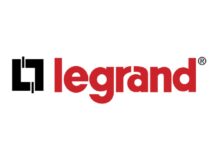Everybody loves a startup. Young professionals in particular love the excitement, the pace , the ability to try new things and being part of a team trying to change the world. This gives new companies an edge in developing innovative technology solutions. Given that healthcare has tended to lag behind most other sectors in adopting digital strategies, startup companies are vitally important to the transformation of the industry.
Healthcare startups also have their challenges. It’s estimated that 90% of healthtech companies fail in their first five years. And one of the biggest hurdles they face is the need for interoperability. Interoperability – exchanging information between different healthcare systems in a meaningful way – has been central to healthcare data management ever since specialist healthcare applications first appeared.
Exchanging data in a completely unambiguous way is important across the healthcare continuum, especially when it comes to caring for patients and for analysing the evidence for new medical treatments. This means that if healthcare startups want to develop new solutions and successfully bring them to market, they need to build on a foundation of interoperability and work with a range of data standards.
Interoperability standards – take your pick
When it comes to the development and promulgation of interoperability standards, the healthcare industry has a veritable alphabet soup of active bodies, including Health Level Seven (HL7®), ASTM International, DICOM (Digital Imaging and Communications in Medicine) and IHE (Integrating the Healthcare Enterprise).
Many of the standards these bodies control – and their underlying data models and messaging protocols – date back a decade or more. It would be a mistake, however, to dismiss them as “legacy” standards, and to assume they are inefficient or about to be superseded by more modern standards like HL7 FHIR® (Fast Healthcare Interoperability Resources), a concept first put forward and led in Australia by Graham Grieve.
This is because a large number of healthcare applications rely on these standards to acquire the data they need from other applications and systems. This data could reside in administrative and departmental systems, or medical devices, in addition to their own data repositories. And these applications typically have long lifecycles and are not due for immediate replacement.
Integration with existing healthcare systems
For innovative new solutions to succeed, they have to exchange data with existing healthcare systems. That means being able to communicate using their preferred mechanisms or standards. It also means that healthcare startups need to have a strategy for how their solutions fit into and interact with the data infrastructures of the healthcare providers they want to work with.
FHIR, HL7’s newest clinical data standard, uses RESTful Application Programming Interfaces (APIs), which are also the basis of the ecommerce and social media applications we use on a daily basis. That allows FHIR to be used in a range of different contexts, from system-to-system messaging to consuming innovative new services. It’s likely that most interoperability will be done via FHIR at some point in the future. For example, if healthcare providers want to integrate with new Apple Health products, they will have use FHIR.
However, right now, supporting earlier data standards and APIs, and even interfaces to systems that don’t use standards, makes it easier for a new application or solution to fit into the existing healthcare data ecosystem. In fact, demonstrating this sort of flexibility could be a key competitive advantage for startup companies, and help them acquire more customers.
Innovation and AI rely on data management
Data management capabilities are also important. Clinicians and other carers are increasingly looking to leverage healthcare data to understand what is the best treatment for an individual patient, for example. That could be through access to a complete set of patient data, or through applying artificial intelligence (AI) algorithms trained using large volumes of comparable data. These processes are greatly simplified if data is consistent and flows easily between systems rather than being scattered throughout disparate data silos.
Isolating data within a single system limits the clinical and financial value that can be derived from it. The solutions that healthcare startups develop need to be able to acquire data from multiple sources and share it with other systems, and that requires interoperability. By making data fluid, they will maximise both the benefits to patients and the value that healthcare providers can achieve.
The use of AI and machine learning is growing. The ability to take an almost countless number of data points into account when making decisions is already proving valuable to clinicians. Yet the success of AI and machine learning initiatives is highly dependent on the quality of the datasets they use. This in turn relies on the ability to acquire and easily exchange healthcare data, making it a key limiting factor in what can currently be achieved. By developing innovative solutions with strong data management and interoperability capabilities, healthcare startups will help to overcome barriers to AI and machine learning and unlock even more value from healthcare data.
Interoperability should be considered up front
At the end of the day, healthcare providers will prioritise interoperability with existing systems when choosing new solutions. Regardless of how innovative they are, if new solutions require customers to do the heavy lifting of data integration, their adoption will probably be limited. If they are to succeed – and hopefully survive and thrive well beyond the five-year mark – interoperability cannot afford to be an afterthought that startups only consider at the end of the development process.


















